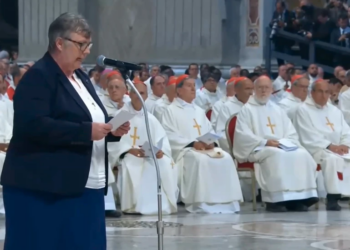President Trump’s negotiations with Iran and his ending of the sanctions on Syria are pleasant surprises to those who thought his Middle Eastern policy might take a different direction.
In visiting the Middle East, Donald Trump has done what the Left has always demanded America should do. He’s giving peace a chance. To the consternation of Washington hawks, Trump is upending decades of American foreign policy overnight by reaching out to Syria and Iran. In essence, he is not only seeking to steer the Middle East away from confrontation but also to outmaneuver Russia.
His moves hold much promise. Rather than become the cat’s paw of Israeli prime minister Benjamin Netanyahu, who has been angling to embroil America in a war with Iran, Trump has flipped the script. In Riyadh, Trump told Iran that he was ready to reach a deal. Trump’s words were direct and clear: “In the case of Iran, I have never believed in having permanent enemies. I am different than a lot of people think. I don’t like permanent enemies…I want to make a deal with Iran.” Iran seems receptive. It is dangling the possibility of nuclear cooperation with the United Arab Emirates, coupled with American investment.
Then there’s Syria. Here, too, Trump is proceeding along the right lines. On Wednesday, Trump met with interim Syrian president Ahmed Al-Sharaa. It was the first such meeting between an American and Syrian head of state in twenty-five years. Netanyahu asked Trump not to lift sanctions on Syria. Trump ignored him. “It gives them a chance for greatness,” he said.
Actually, it offers even more than that. As Bahaa Hariri, the son of former Lebanese prime minister Rafic Hariri, recently observed, it creates the possibility of wider peace and stability in the region. In a post on X on Tuesday, Hariri wrote:
We welcome the U.S. decision, announced by President Donald Trump during his visit to Saudi Arabia, to lift sanctions on Syria—a long-overdue step that marks a critical turning point toward restoring stability in Syria and the region. This move offers a real opportunity to revive Syria’s economy, launch reconstruction, and re-integrate the country into the Arab world. The Syrian people, who have long suffered from war and sanctions, deserve sincere international support to rebuild and reconcile. Lebanon views this development as a chance to strengthen Arab cooperation on the basis of mutual respect and shared interests. We believe it will also help facilitate the dignified and safe return of Syrian refugees to contribute to their country’s recovery. We call on the international community to follow through with practical steps to support Syria’s reconstruction, preserve its unity, and restore its place in the Arab family.
The strife that has plagued the Middle East is not a natural or preordained development. Instead, unscrupulous rulers and demagogues have regularly ascended to power and exploited their restive populations, offering the false promise of Arab nationalism (Nasser) or militant theocracy (Khomeini). There is another path. Rafic Hariri pursued that path in Lebanon until he was brutally assassinated in February 2005 by a Hezbollah suicide truck bomb.
Hariri deserves admiration—admiration for his courage, his determination, and his enlightened policies. His accomplishments were numerous, including the Taif agreement that terminated the Lebanese Civil War, a conflict that had raged for sixteen years and ravaged the once-prosperous country. Hariri was a visionary who championed economic growth by investing in infrastructure and slashing personal and corporate taxes to restore Lebanon to its prewar glory. That vision now has a second chance. The region should seize it.
About the Author: Jacob Heilbrunn
Jacob Heilbrunn is editor of The National Interest and is a nonresident senior fellow at the Atlantic Council’s Eurasia Center. He has written on both foreign and domestic issues for numerous publications, including The New York Times, The Washington Post, The Wall Street Journal, Financial Times, Foreign Affairs, Reuters, Washington Monthly, and The Weekly Standard. He has also written for German publications such as Cicero, Frankfurter Allgemeine Zeitung, and Der Tagesspiegel.
Image: Noamgalai / Shutterstock.com


















